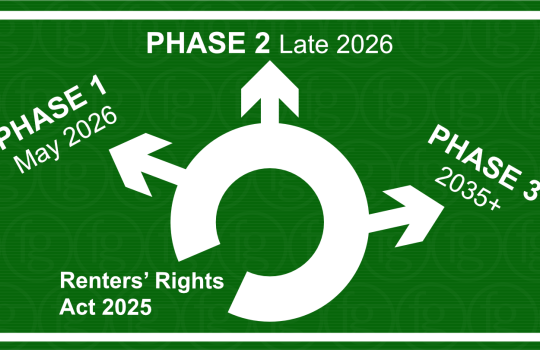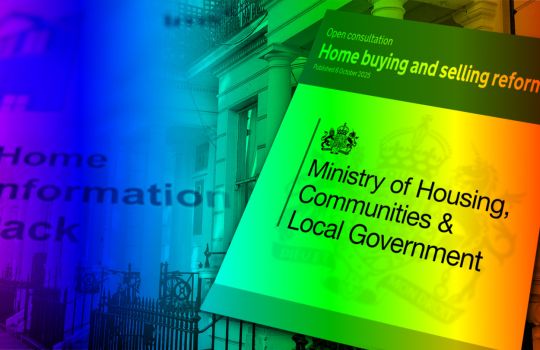Speeding Things Up?

The UK Government has launched a consultation on sweeping reforms designed to make the home-buying and selling process faster, cheaper, and more transparent. With around 1.2 million residential transactions each year, the current system has faced criticism for being slow, complex, and prone to last-minute failures. The proposed changes aim to streamline the process and reduce the financial and emotional toll on buyers and sellers.
Key Reform Proposals
Upfront Property Information: Sellers will be expected to provide essential documentation - such as title deeds, surveys, leasehold details, and planning permissions - before listing a property. This should assist helpingbuyers make informed decisions earlier and reduce delays later in the process.
Digital Tools and Property Logbooks: The government is promoting the use of digital platforms, including online property logbooks that store key data. These tools, it feels, will reduce duplication, improve access to legal documents, and accelerate transaction timelines.
Earlier Binding Agreements: Conditional contracts or reservation agreements may be introduced to lock in deals earlier, discouraging practices like “gazumping” and reducing the risk of transactions falling through.
Raising Professional Standards: Estate agents and conveyancers will be subject to new qualifications, accreditation schemes, and a mandatory Code of Practice. This aims to improve consumer trust and ensure consistent service quality.
Simplifying Legal Processes: The reforms propose reducing duplicate paperwork, streamlining conveyancing procedures, and eliminating unnecessary legal checks to speed up transactions.
Expected Impact on Costs and Timelines
If implemented, the reforms could reduce the average transaction time by up to four weeks and cut the number of failed deals, which currently cost buyers and sellers around £400 million annually.
- Buyers could save up to £710 in transaction costs.
- Sellers may save around £400.
These changes are particularly aimed at helping first-time buyers, who often face significant barriers to entering the housing market.
| Feature - scroll to continue with content... |
| continue reading article... |
Challenges and Questions Ahead
While the proposals are ambitious, several practical hurdles remain:
- Workforce Capacity: Surveyors, conveyancers, and estate agents will need to adapt to earlier involvement in the process. Who will provide the additional capacity during the transition?
- Data Reliability and Standards: Success depends on verified, up-to-date property data. Ensuring accuracy, liability, and interoperability will be critical.
- Cost Shifting and Price Inflation: Sellers may pass on new costs (e.g. surveys) by raising asking prices.
- Regional Legal Differences: Scotland already uses upfront reports and binding offers. Adapting these models to England, Wales, and Northern Ireland will require careful calibration.
- Digital Inclusion and Security: As more steps move online, systems must be secure and accessible to those with limited digital literacy.
- Stakeholder Resistance: Some professionals may resist changes to established workflows.
- Transitional Complexity: Old and new systems may need to coexist for a time, potentially causing confusion or friction.
A Future of Faster, Fairer Transactions?
If successfully implemented, these reforms could mark the most significant transformation of the UK’s residential property system in decades - reshaping how homes are bought and sold.
The consultation is open until 21 December 2025, after which the government will publish a roadmap for implementation.
View the full consultation and submit responses here
This article is for informational purposes. Always seek professional advice before making any property and/or financial decisions.














